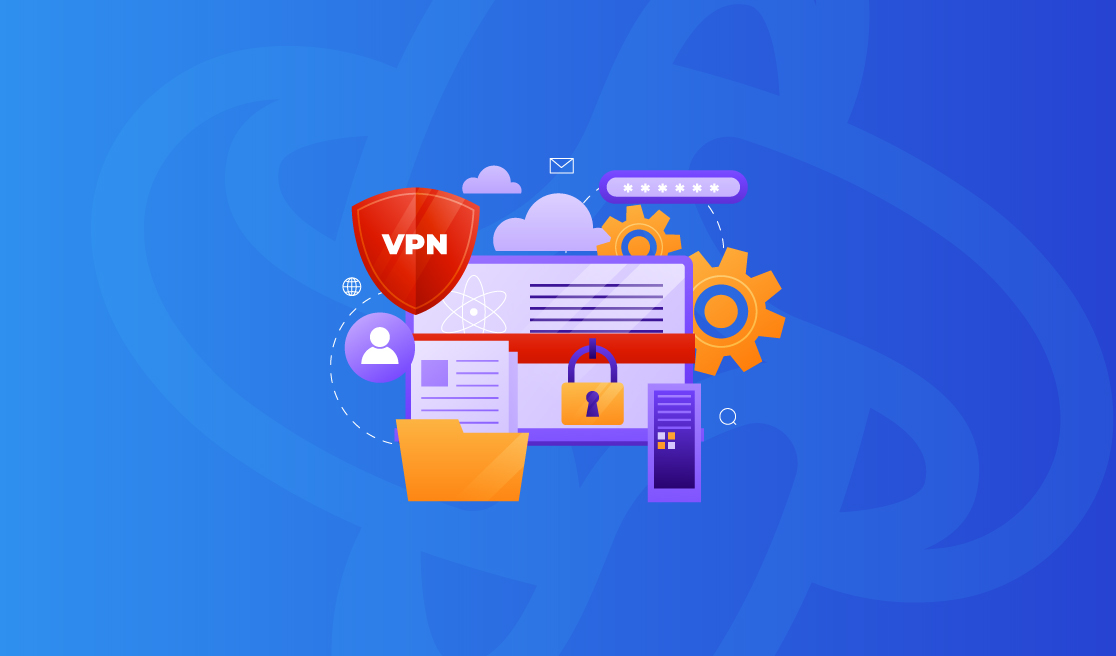Proxy or VPN: Comparison and Analysis
Which is better: proxy or VPN? This is one of the most popular questions not only from our clients but also from internet users. Today our team will provide a detailed answer. We will explain everything about proxy servers and VPN, compare their strengths and weaknesses, and find out which is better and more efficient.
What is a Proxy Server?
A proxy server is an intermediate server. It acts as a mediator between the user and internet resources. When a user searches for something on a search engine, they send a direct request to the website's servers (e.g., YouTube). If the user uses a proxy server, the request is first sent to the proxy server and then to the servers of the desired website. As a result, the target site (its servers) sees not the user's original IP but the proxy's address.
How Proxy Works
A more detailed scheme of how a proxy works:
- Receiving requests. The user sends a request to the proxy server (e.g., a request to load the YouTube page).
- Forwarding requests. The proxy server receives the request and forwards it to the YouTube server.
- Receiving responses. The proxy receives the response from the YouTube server.
- Transferring data. The proxy server sends the received data back to the user. In this case, the user sees the results without revealing their real IP address.
Advantages of Proxies
- Anonymity. Masking the user's real IP helps maintain anonymity.
- Bypassing geographical restrictions. The user gets access to resources (websites, portals, content) that may be blocked in their region.
- Protection. The proxy server filters malicious traffic, preventing attacks on devices and company servers.
- Caching. Using a proxy speeds up resource loading by storing copies of frequently used data.
- Load balancing. Proxies distribute incoming requests among multiple servers. This increases data processing speed and improves site availability.
- Bandwidth control. Some proxies allow limiting internet connection speed for individual users or applications. This helps effectively use available bandwidth.
- Logging and auditing. Proxy servers enable detailed logging of network requests and responses.
Weaknesses of Proxies
- Reduced connection speed. Redirecting traffic through an additional server can increase response time. Not always, but it can happen.
- Security risks. Using an unreliable proxy server can lead to data leaks or exposing system vulnerabilities (followed by hacker attacks).
- Limited encryption. Not all proxy servers support modern encryption protocols. This makes the user's traffic vulnerable to interception.
What is VPN?
VPN or Virtual Private Network is a technology for protecting and encrypting the connection between the user's device and the server. The principle of operation is similar to proxy servers, but there are differences.
How VPN Works
The process of VPN operation includes the following important steps:
- Connection. The user connects to the VPN server using specialized software (an app or extension).
- Data encryption. All data transmitted between the user and the VPN server is encrypted.
- Traffic forwarding. The VPN server receives the encrypted data, decrypts it, and sends it to the target resource on the internet.
- Response. The response from the website first goes to the VPN server, where it is re-encrypted and sent back to the user.
Advantages of VPN
- Privacy and anonymity. VPN hides the IP address and location, making online activity private.
- Data security. Data encryption prevents it from being intercepted and read by third parties.
- Bypassing censorship and blocks. The user gains access to sites and services that may be blocked in their region.
- Protection in public places and Wi-Fi. Using a VPN, data transmission is protected even when connected through unsecured public Wi-Fi.
Weaknesses of VPN
Despite its advantages, VPN also has disadvantages:
- Reduced internet speed. Encryption and data redirection can significantly reduce internet speed.
- Legal restrictions. In some countries, using VPN is prohibited or regulated by law.
- Cost. Reliable and secure VPNs are offered on a paid basis.
- Setup complexity. For maximum efficiency and security, VPN setup may require technical knowledge.
Who Uses Proxies and Where?
Proxy servers are widely used in many areas.
Companies and Businesses
- Control and monitoring of employees' internet activity.
- Ensuring the security of the company's internal network, filtering malicious traffic.
- Managing access to certain resources and services.
SEO Specialists and Marketers
- Collecting data on ranking without risk of blocking.
- Competitor analysis and monitoring advertising campaigns in different countries.
- Configuring advertising for a specific audience and GEO.
- Improving marketing strategies.
Developers and Testers
- Testing applications and websites from different GEOs.
- Simulating software operation under various network conditions.
Regular Users
- Accessing content that is restricted or blocked in certain countries (e.g., videos on YouTube or streaming services like Netflix, Amazon Prime).
- Anonymous surfing on the internet and protecting personal information.
- Working with resource-intensive tasks.
- Scraping data from websites (especially for working with large volumes and frequent requests).
As we can see, proxy servers are used for business or security work. Mainly, they are used by specialists in the field of advertising, traffic arbitration, and other areas. High-quality proxy servers are a functional tool.
Who Uses VPN and Where?
Corporate users:
- For secure remote access to corporate resources and networks.
- For protecting data transmitted by employees working from home or on business trips.
Regular users:
- To ensure privacy when surfing the internet, especially through public Wi-Fi networks.
- To access content that is blocked in their country.
- For abusing various game mechanics or obtaining unique items.
Travelers and expats:
- To access services and websites of their home country, which may become unavailable due to geographical restrictions.
- To protect personal data and private information when connected to the internet in hotels, airports, and other public places.
Developers and IT specialists:
- For testing applications and accessing servers from different parts of the world, simulating real usage conditions.
As practice shows, VPNs are mainly used by regular users for personal needs: from basic security to accessing restricted content.
What to Choose for Work?
We have compared and analyzed proxy servers and VPNs in detail. You can see that proxies are used for work tasks, while VPNs are for personal use. High-quality proxies are a functional and proven tool in many areas: advertising, arbitration, cryptocurrency abuse, competitor analysis, and much more. If you work in one of the mentioned areas, your choice is proxy servers from Proxyma.
FAQ. User Questions and Answers
Can I use both proxy and VPN at the same time?
Potentially yes, but there is no need for it. It will only improve connection quality and reduce its speed. Each tool has its own set of tasks and goals, so choose one, but a high-quality one.
Can I use free proxies for work?
Only at your own risk. Often, free proxies do not provide any security guarantees to users. The exceptions may be trial packages or trial periods from verified providers.
Which provides higher speed: proxy server or VPN?
Proxy servers are faster than VPNs. VPN encrypts connections, which slows down data transmission speed.




